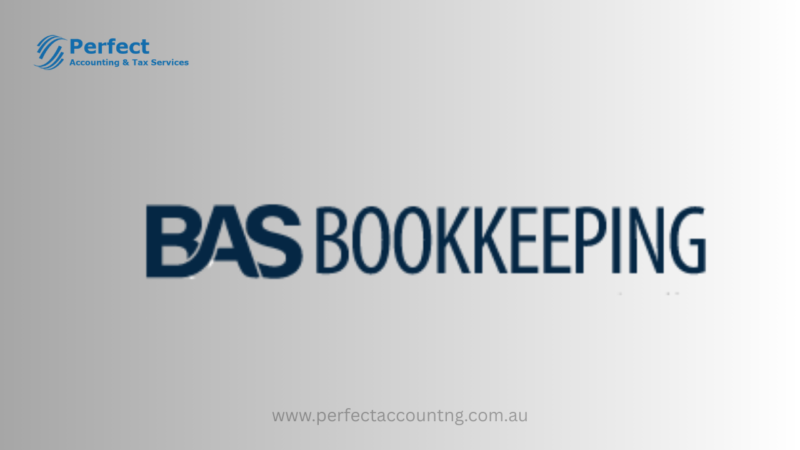The Beginner’s Guide to BAS Bookkeeping: Make Your Business Life Easier
Whether you’re a sole trader, a startup, or a growing company, this guide will show you what BAS bookkeeping really means, why it matters, and how to stay on top of it without losing sleep.

Running a business is exciting. Youre your own boss, you call the shots, and youre building something meaningful. But lets be honestwhen it comes to bookkeeping, especiallyBAS bookkeeping, things can get a little overwhelming. Dont worry. In this easy-to-follow guide, well break it all down in plain English, with some helpful tips and real-life stories along the way.
Whether youre a sole trader, a startup, or a growing company, this guide will show you whatBAS bookkeepingreally means, why it matters, and how to stay on top of it without losing sleep.
What is BAS Bookkeeping?
BASstands forBusiness Activity Statement. Its a form that businesses in Australia use to report and pay their taxes to theAustralian Taxation Office (ATO).
Think of it as a summary of all the taxes your business needs to handlelikeGST (Goods and Services Tax),PAYG (Pay As You Go)withholding, and other obligations. Every business registered for GST must lodge a BAS either monthly, quarterly, or annually.
And thats whereBAS bookkeepingcomes in.
In simple terms,BAS bookkeepingis the process of keeping your financial records clean, clear, and ready for BAS lodgement. Its about tracking money coming in, money going out, and ensuring everything adds up correctly when its time to deal with the ATO.
Why Is BAS Bookkeeping So Important?
Let me tell you a quick story.
Sarah owns a small caf in Melbourne. Business was going wellgreat coffee, happy customers. But she ignored bookkeeping. When her first BAS lodgement came around, she had no idea where her records were. Receipts were in boxes, sales were untracked, and her stress level? Sky high.
Long story short: she ended up with a fine from the ATO and spent weeks catching up. If only she had kept her books in order.
This is exactly whyBAS bookkeepingis essential. It helps you:
-
AvoidATO penalties
-
Understand yourcash flow
-
Claim the rightGST credits
-
Make smarterbusiness decisions
-
Feel in control
What Does BAS Bookkeeping Involve?
Heres a step-by-step breakdown of whatBAS bookkeepingusually includes:
1.Register for GST
If your business earns over $75,000 per year, you need toregister for GST. Once youre registered, youll need to lodge a BAS regularly.
2.Track Income and Expenses
Youll need to keep detailed records of:
-
Sales and income (including GST collected)
-
Business purchases and expenses (including GST paid)
This is where good bookkeeping software (likeXeroorMYOB) becomes your best friend.
3.Reconcile Your Accounts
This simply means matching your business bank transactions with your bookkeeping records. Its a way of making sure your numbers are accurate and nothing is missing.
4.Calculate GST Payable or Refundable
This step is crucial. You need to figure out:
GST on sales GST on purchases = Amount you owe or get refunded
5.Prepare and Lodge Your BAS
You can lodge your BAS online via theATO Business Portal, through yourregistered BAS agent, or by mailing a paper form.
6.Make the Payment (if applicable)
Once you lodge, pay the amount due before the deadline. Missing payments can lead to penalties, so dont delay!
How Often Do You Need to Lodge a BAS?
This depends on your business size:
| Business Type | BAS Lodgement Frequency |
|---|---|
| Small Businesses | Quarterly |
| Larger Businesses | Monthly |
| Voluntary GST Registered | Annually |
The ATO will let you know your lodgement cycle when you register for GST.
Tips to Simplify Your BAS Bookkeeping
Managing yourBAS obligationsdoesnt have to be painful. Here are a few golden tips:
? Use Accounting Software
Digital tools make it easier to track everything. Cloud-based solutions likeXeroorQuickBooksare game changers.
? Keep Receipts Organised
Use apps likeDextto snap and store receipts in real time.
? Dont Mix Personal and Business Expenses
Open a separate business bank account. Itll save you hours of sorting later.
? Get Help from a Pro
This brings us to the hero of our story
Meet the Experts:Perfect Accounting PTY Ltd
If all this still sounds like a headache, you dont have to do it alone.
AtPerfect Accounting PTY Ltd, we specialise inBAS bookkeeping,tax returns,payroll services, andbusiness advisory. Our team of experienced, friendlyaccounting agentswill ensure your books are tidy, your BAS is lodged on time, and your stress is kept to a minimum.
Why choose us?
-
Transparent pricingno surprises.
-
A personalised approachwe care about your business.
-
Expertise with tools like Xero, MYOB, and QuickBooks.
-
We handle it all while you focus on growing your dream.
Contact us todayviawww.perfectaccounting.com.auto schedule a free consultation and let us take the burden of BAS off your shoulders.
Common BAS Bookkeeping Mistakes to Avoid
Its easy to slip up if youre new to this. Here are some pitfalls to watch out for:
-
Missing GST on invoices
-
Incorrectly classifying expenses
-
Not reconciling bank accounts
-
Missing BAS lodgement deadlines
-
Not backing up data
A professionalBAS agentwill help you avoid all of these and keep your business on track.
Final Thoughts
BAS bookkeepingmight not be glamorous, but its a vital part of running a successful business in Australia. The good news? With the right tools, support, and mindset, it doesnt have to be hard.
Remember Sarah from earlier? After her first BAS disaster, she teamed up withPerfect Accounting PTY Ltd, and guess what? Her next BAS was smooth as butterand she got a GST refund.
So dont wait until the last minute or risk doing it wrong. Get professional help and make your life easier today.
?? Visitwww.perfectaccounting.com.auand let the pros handle yourBAS bookkeepingwith confidence.




































